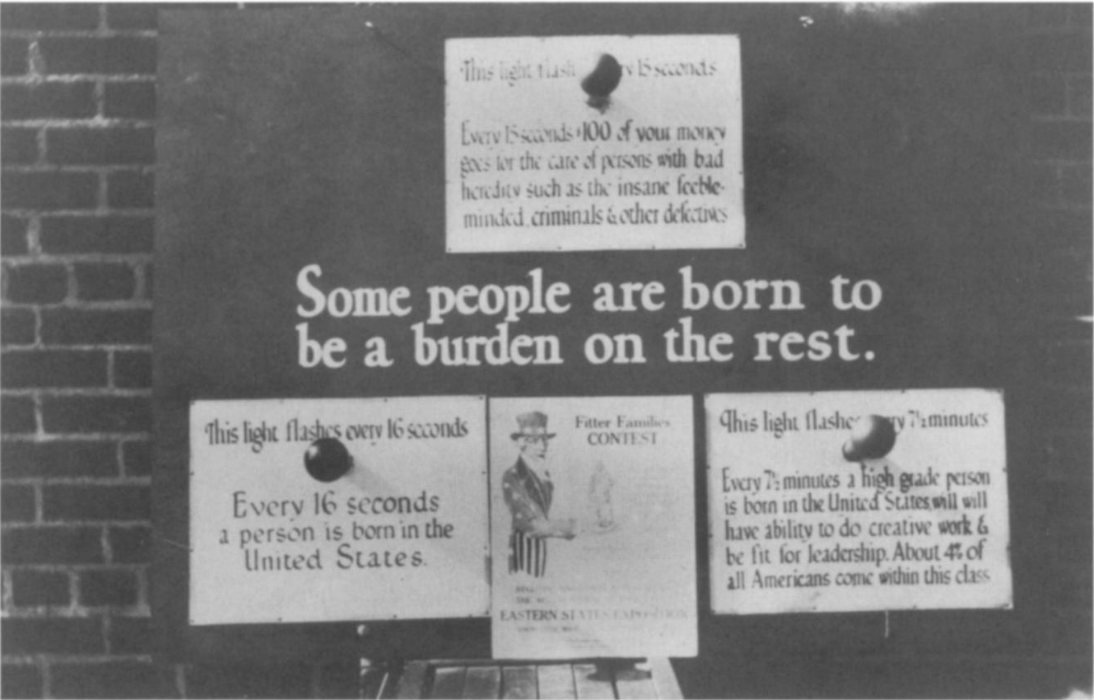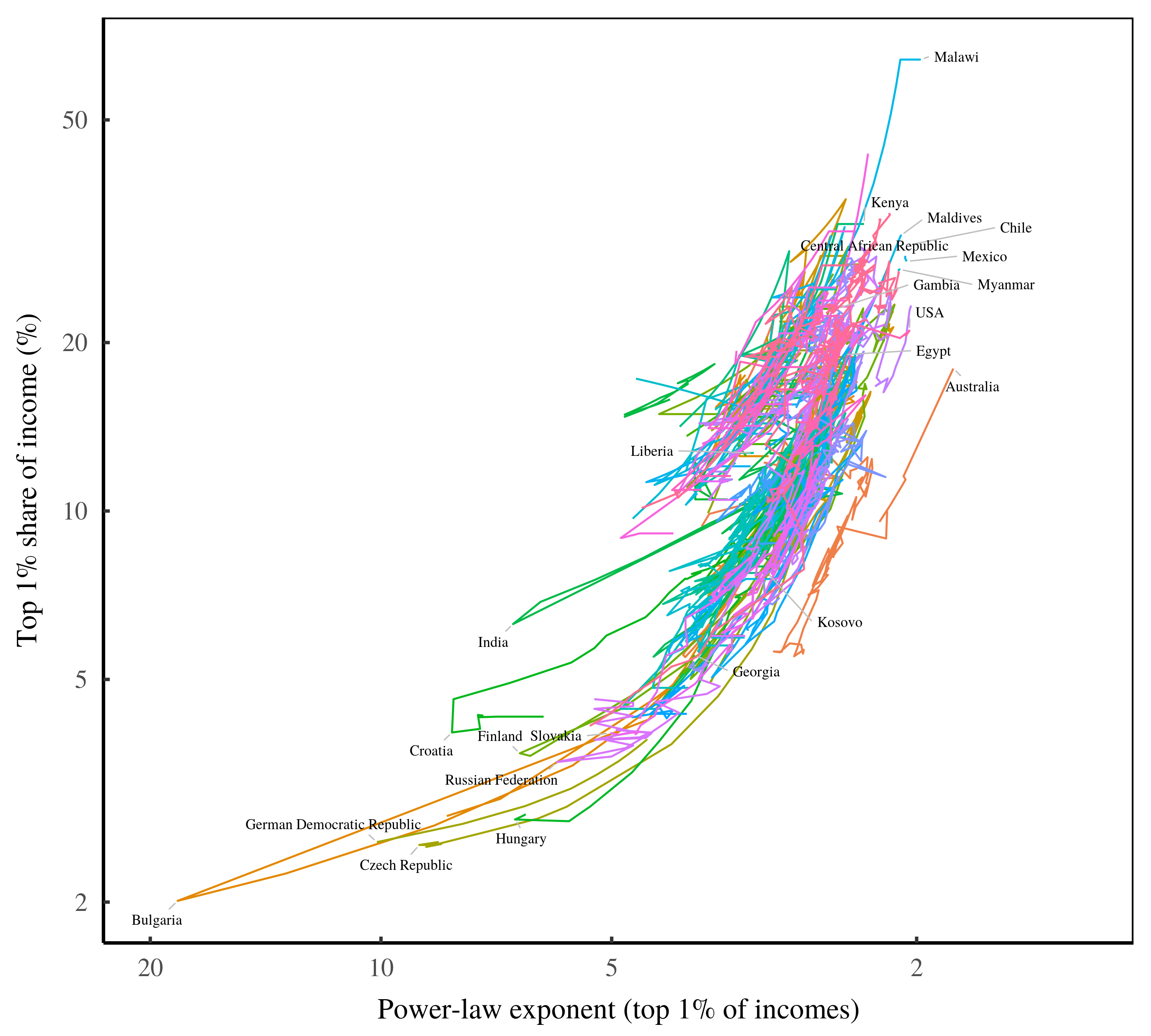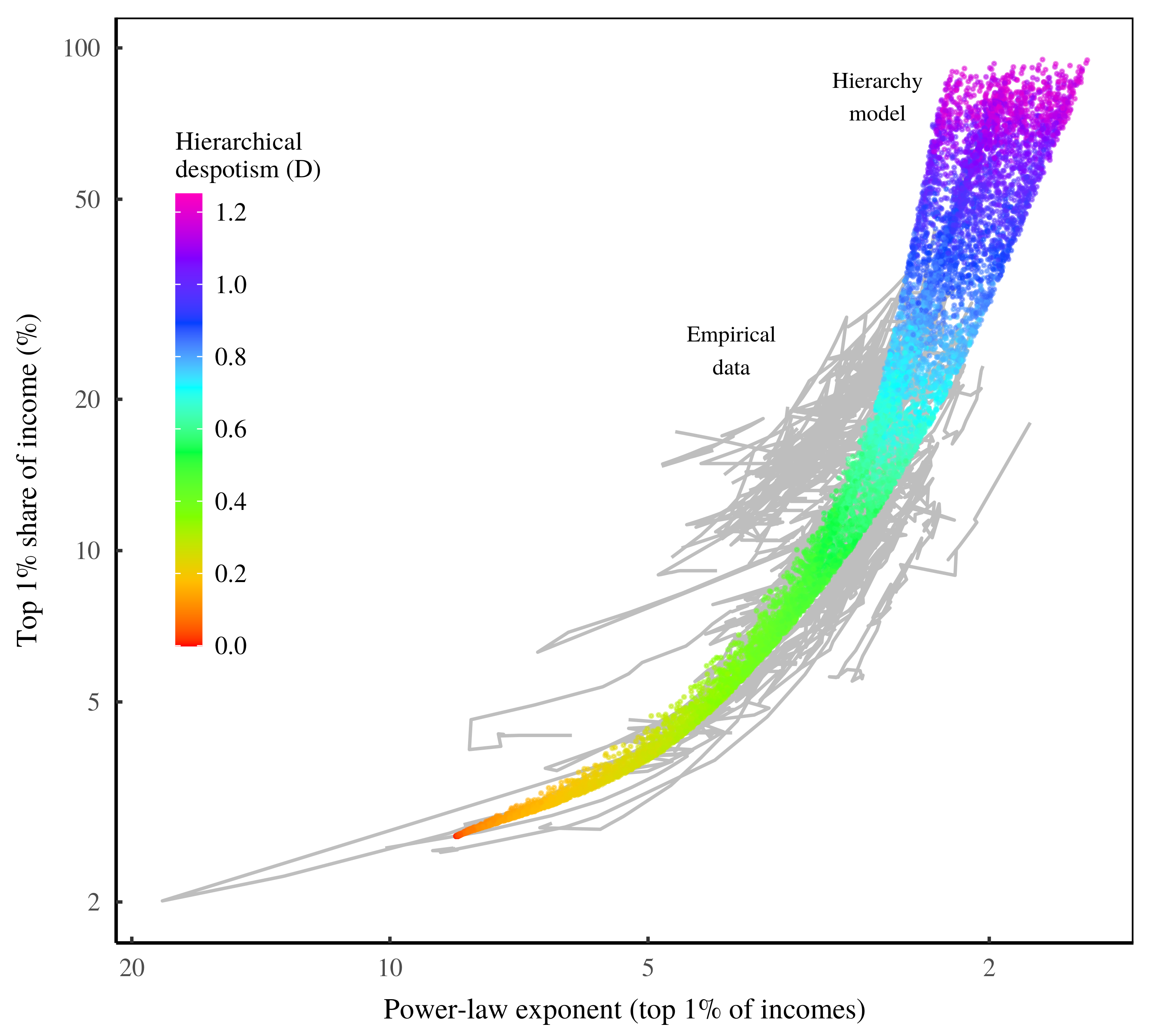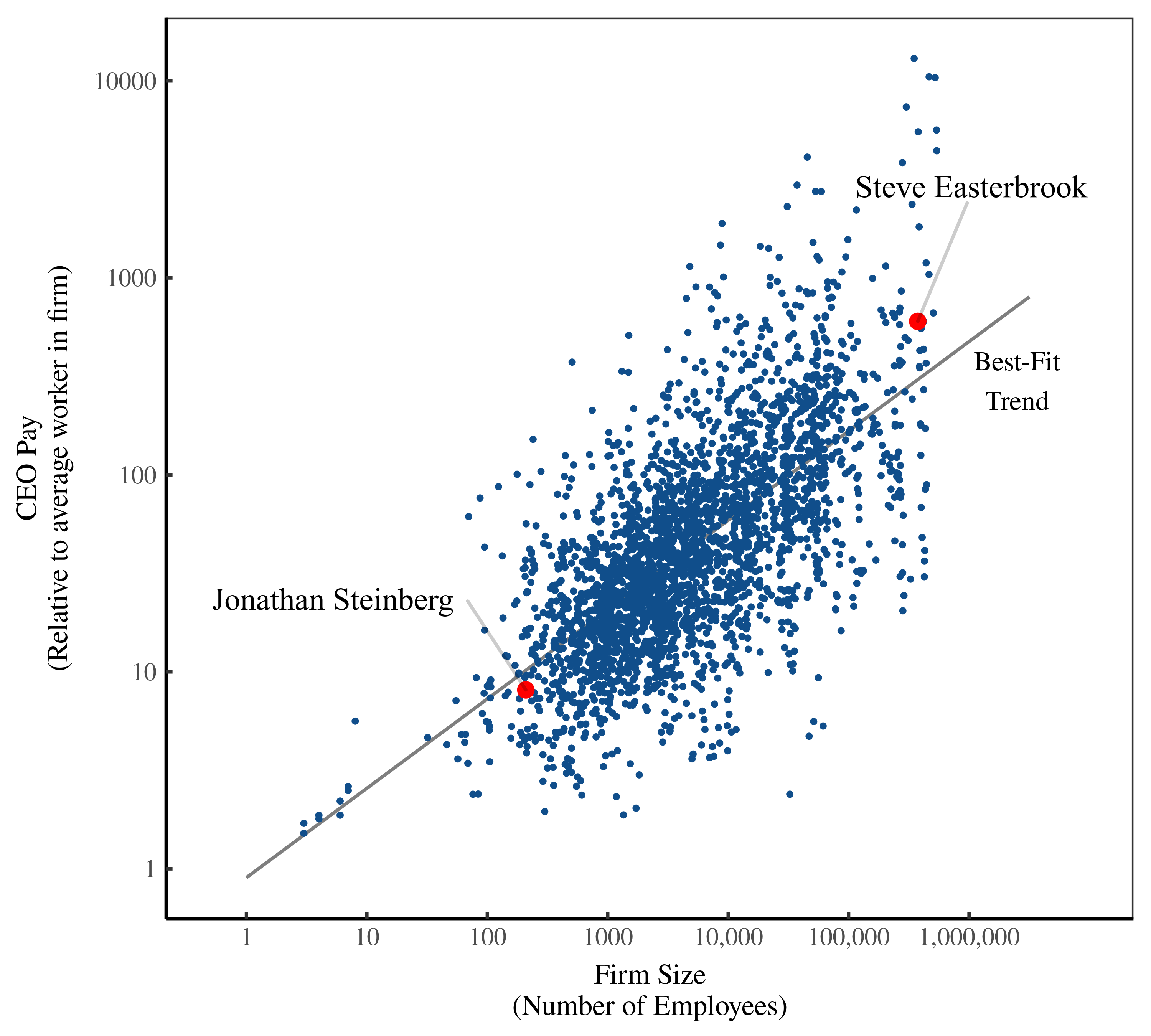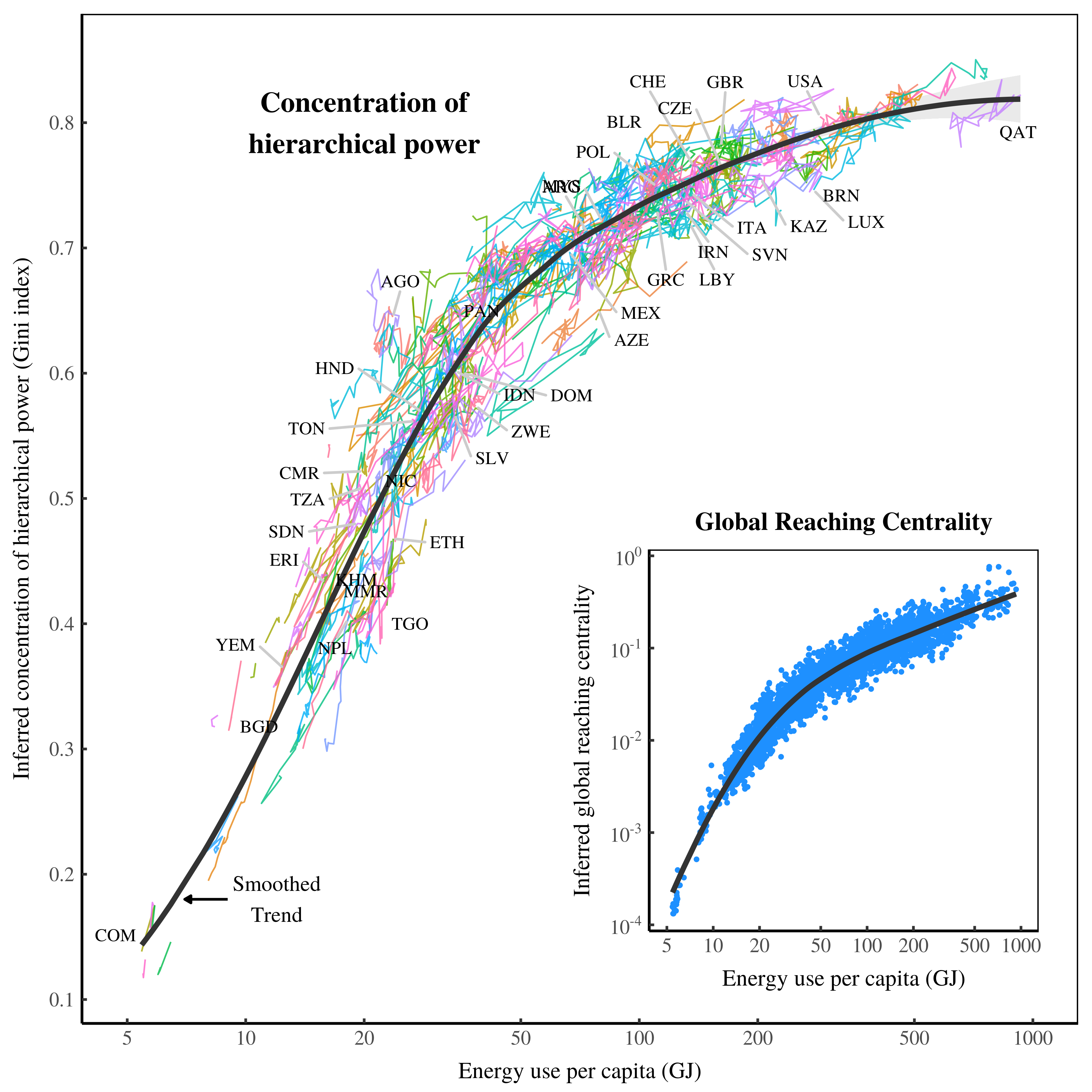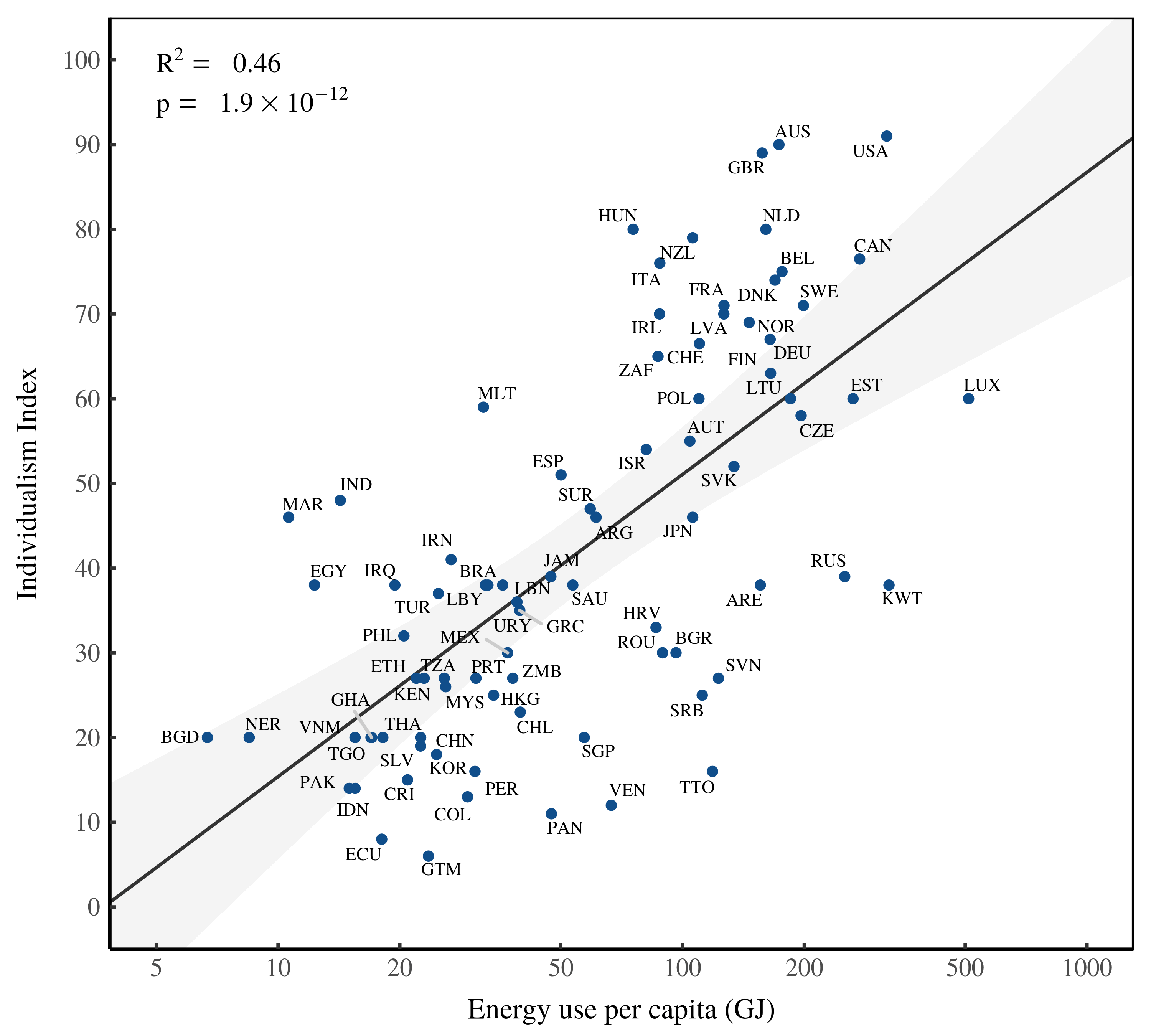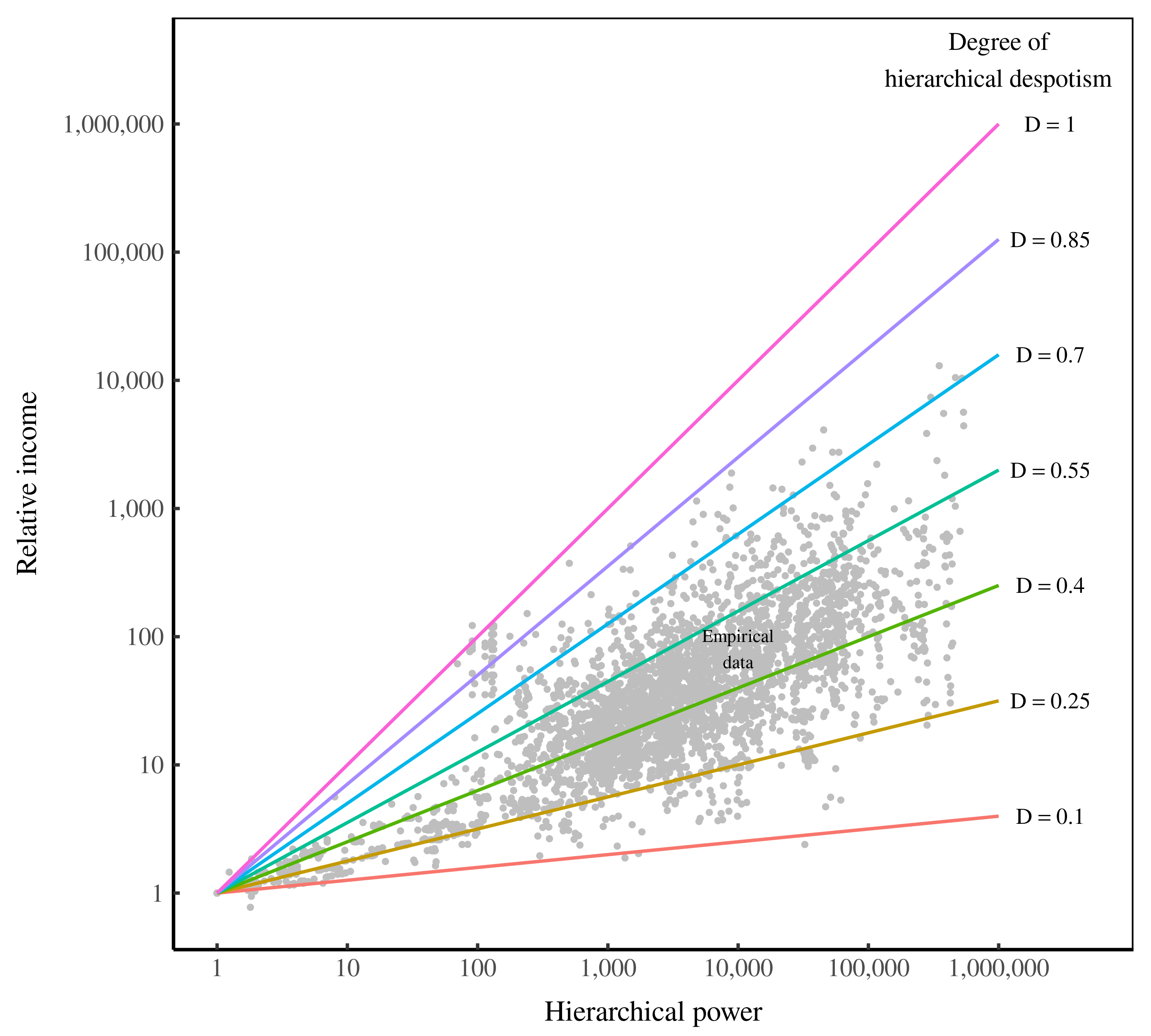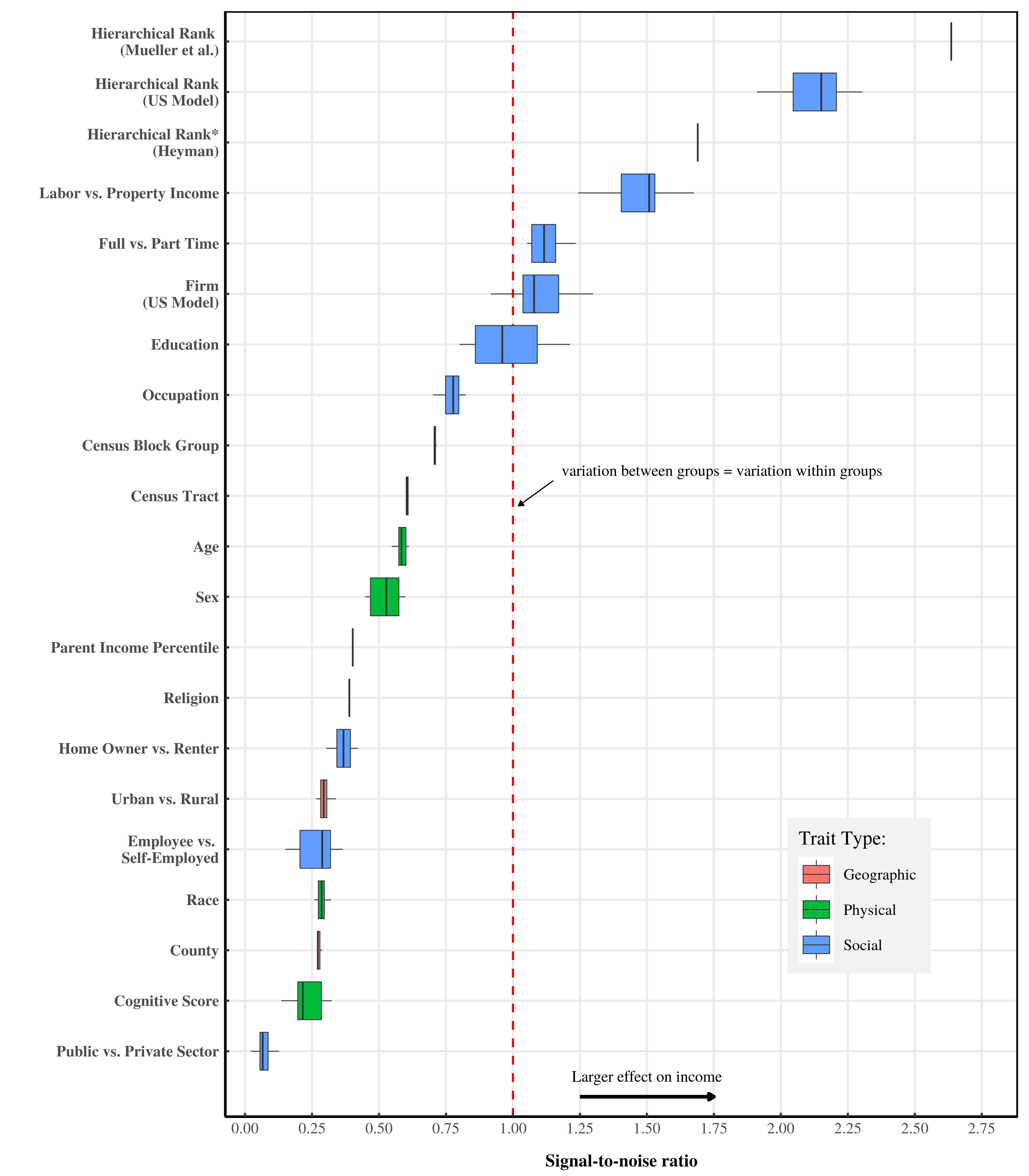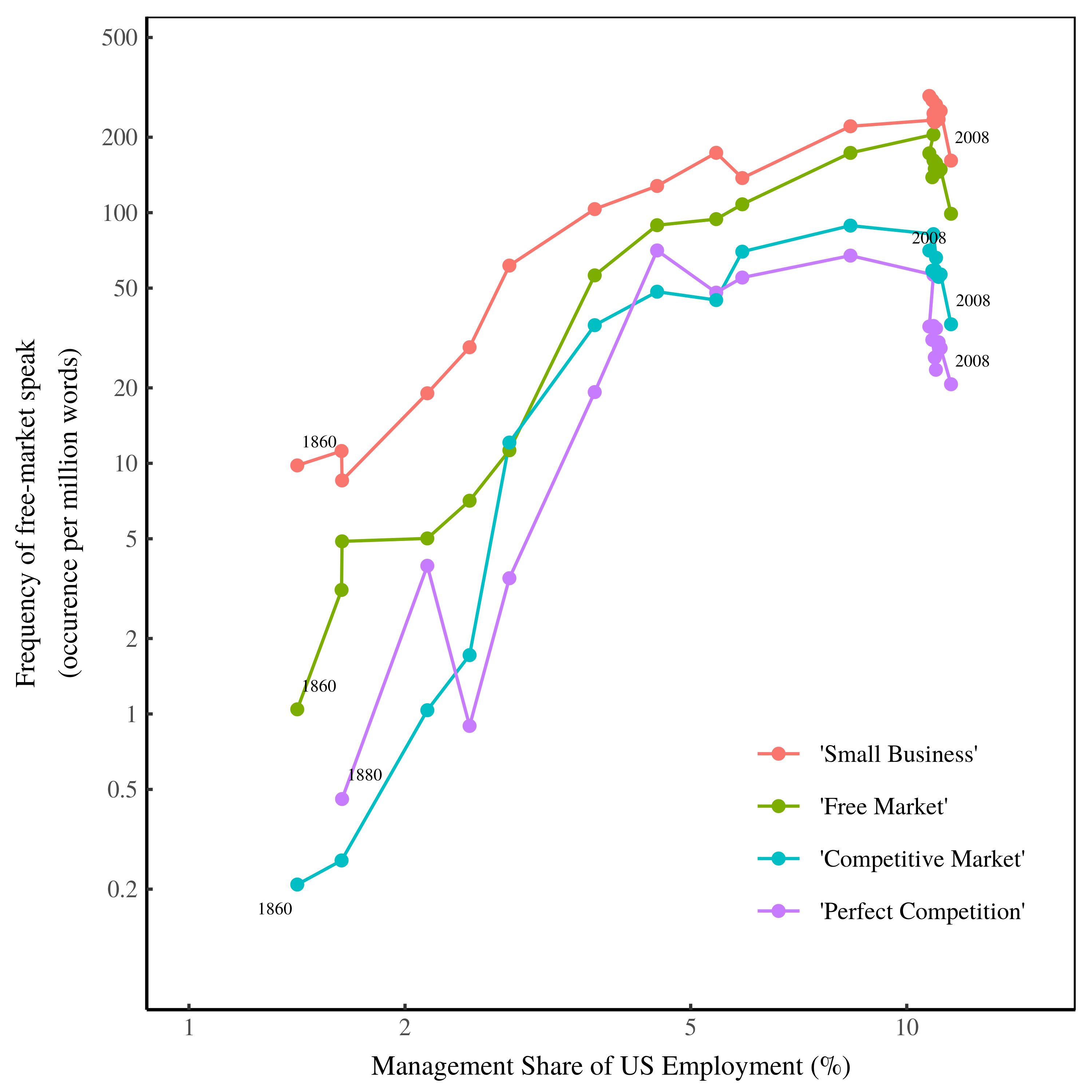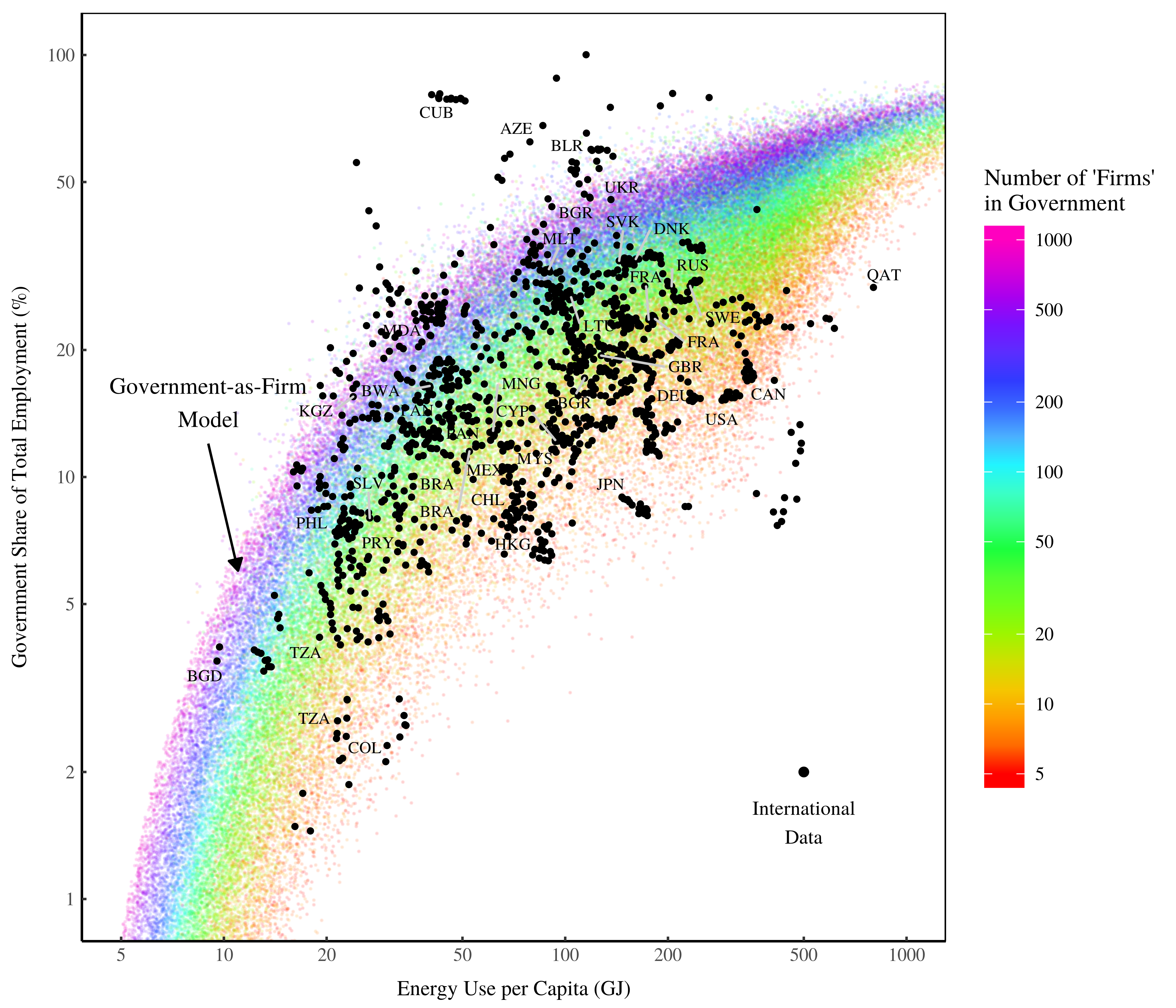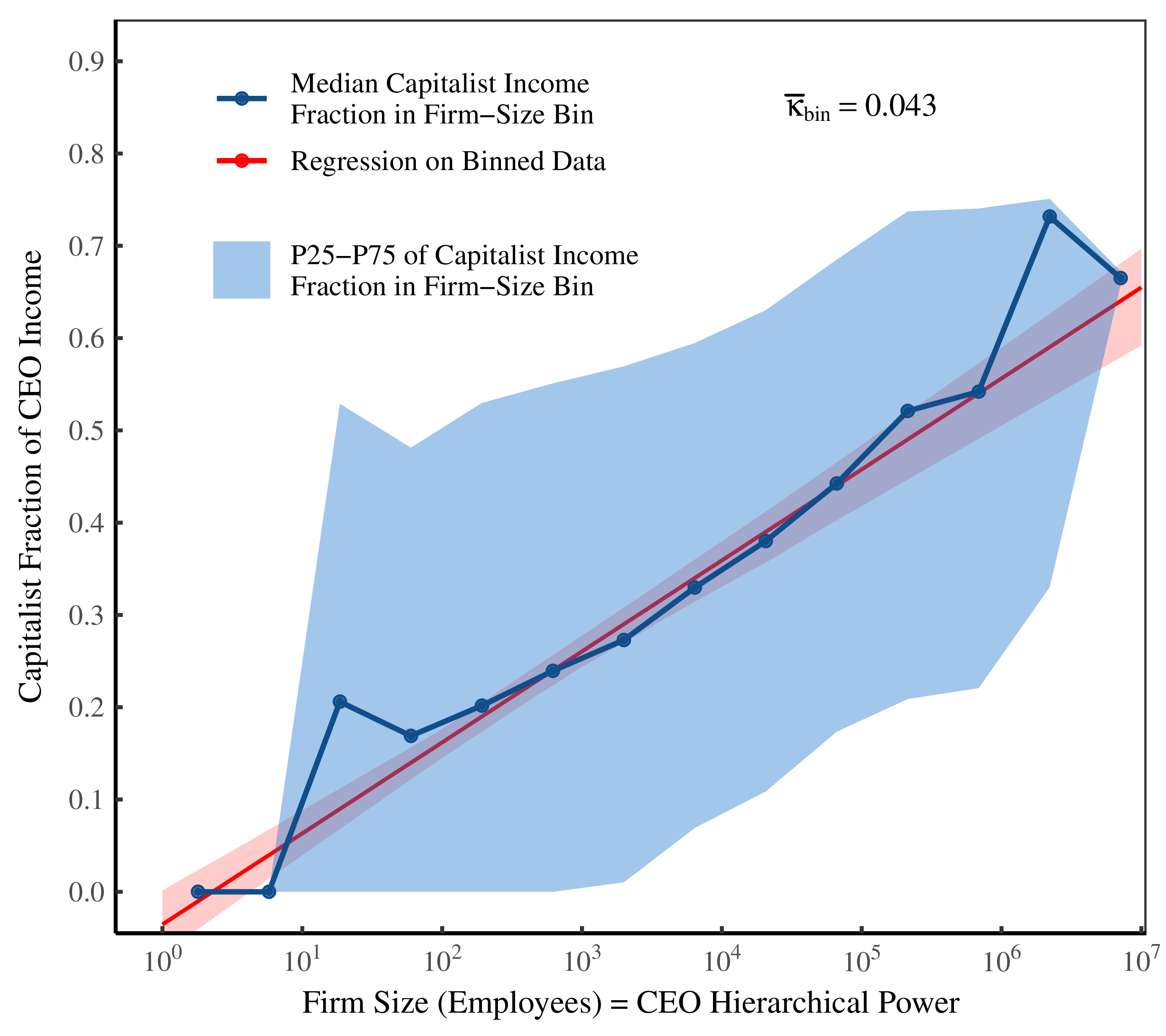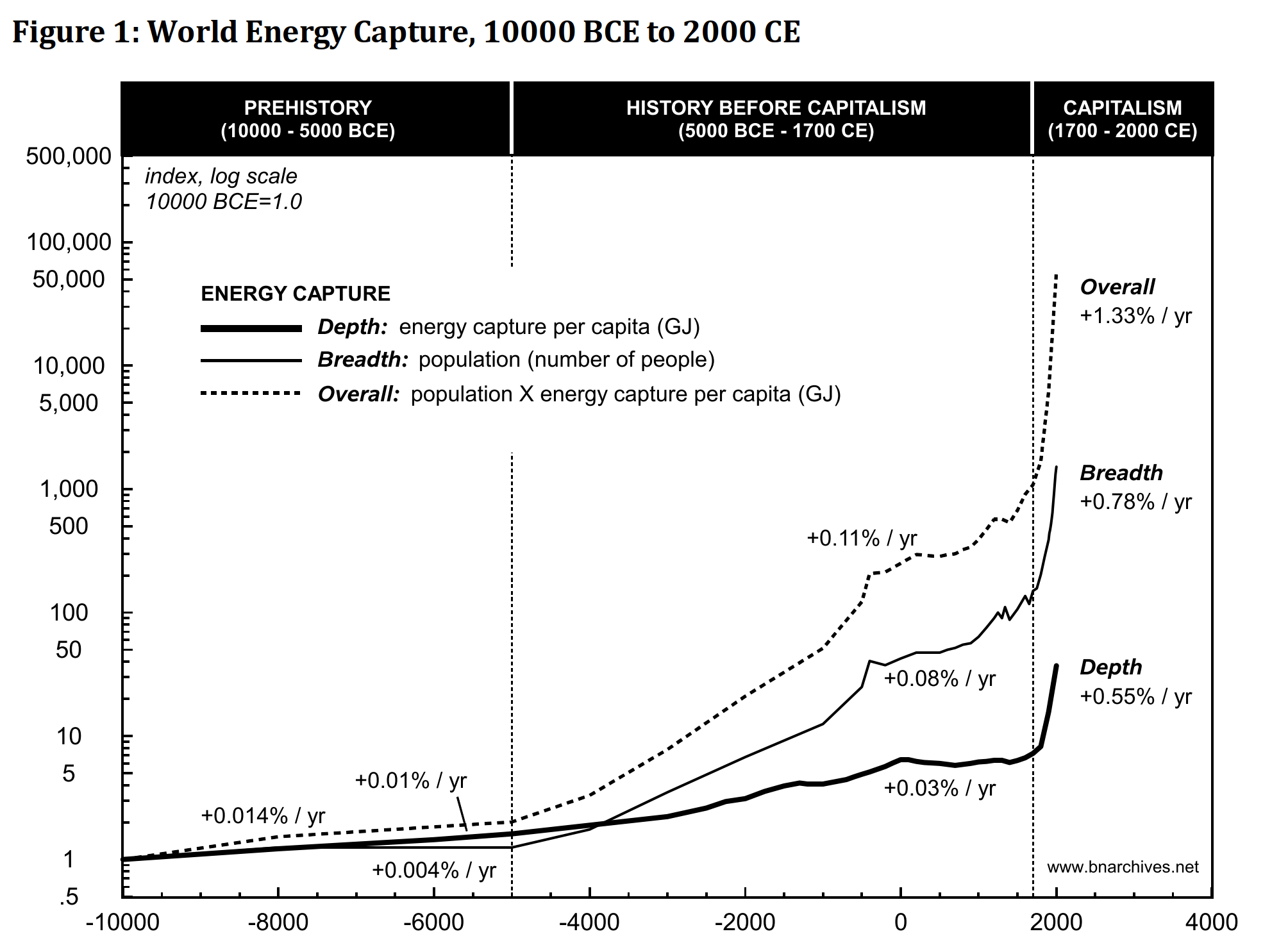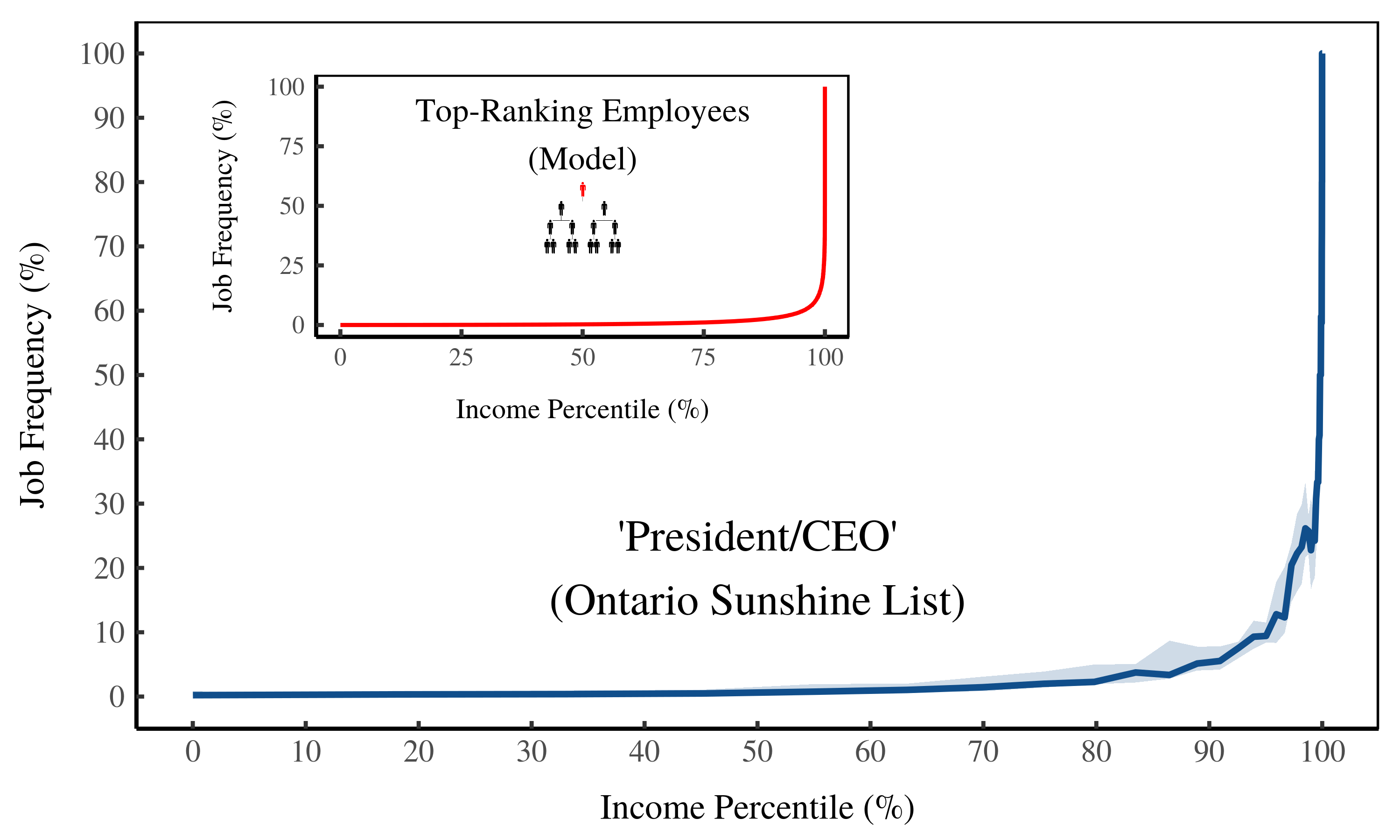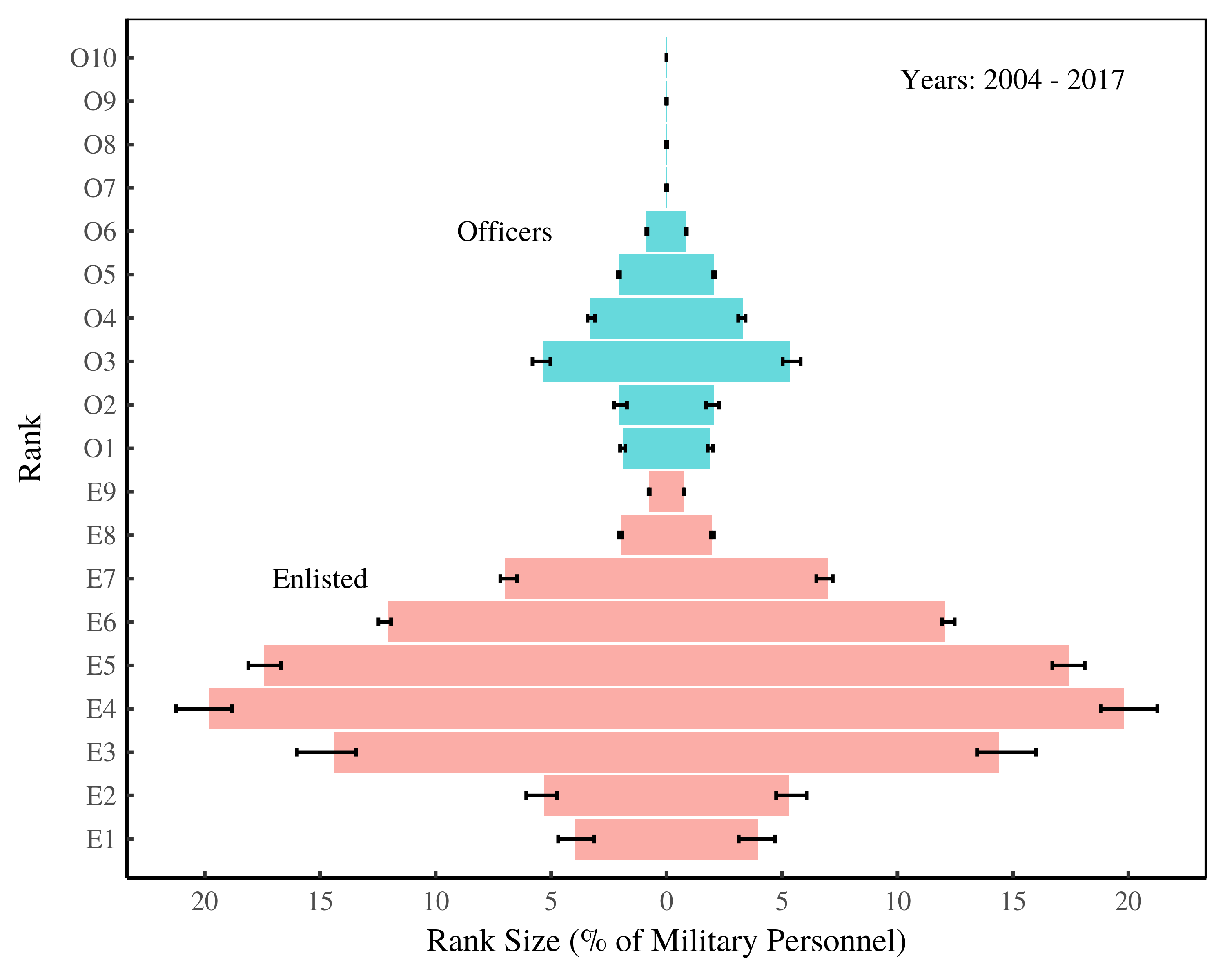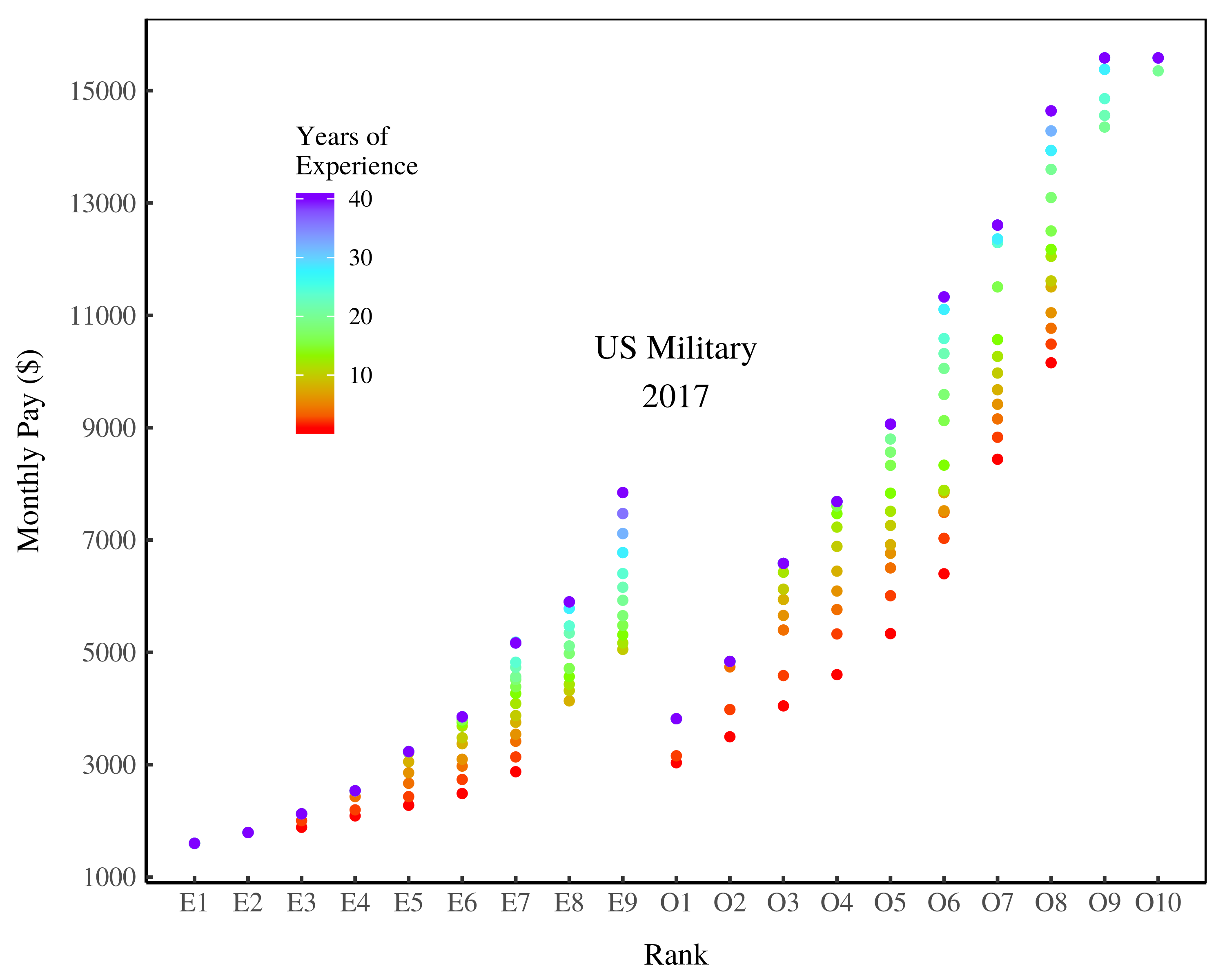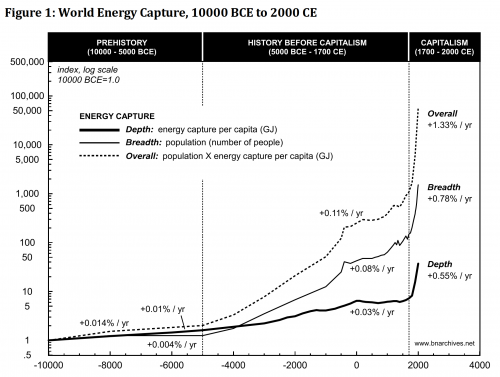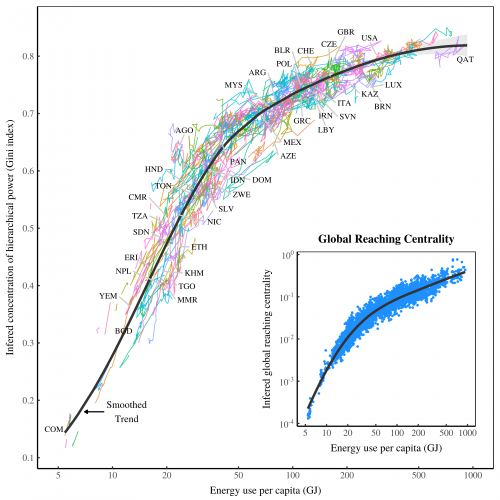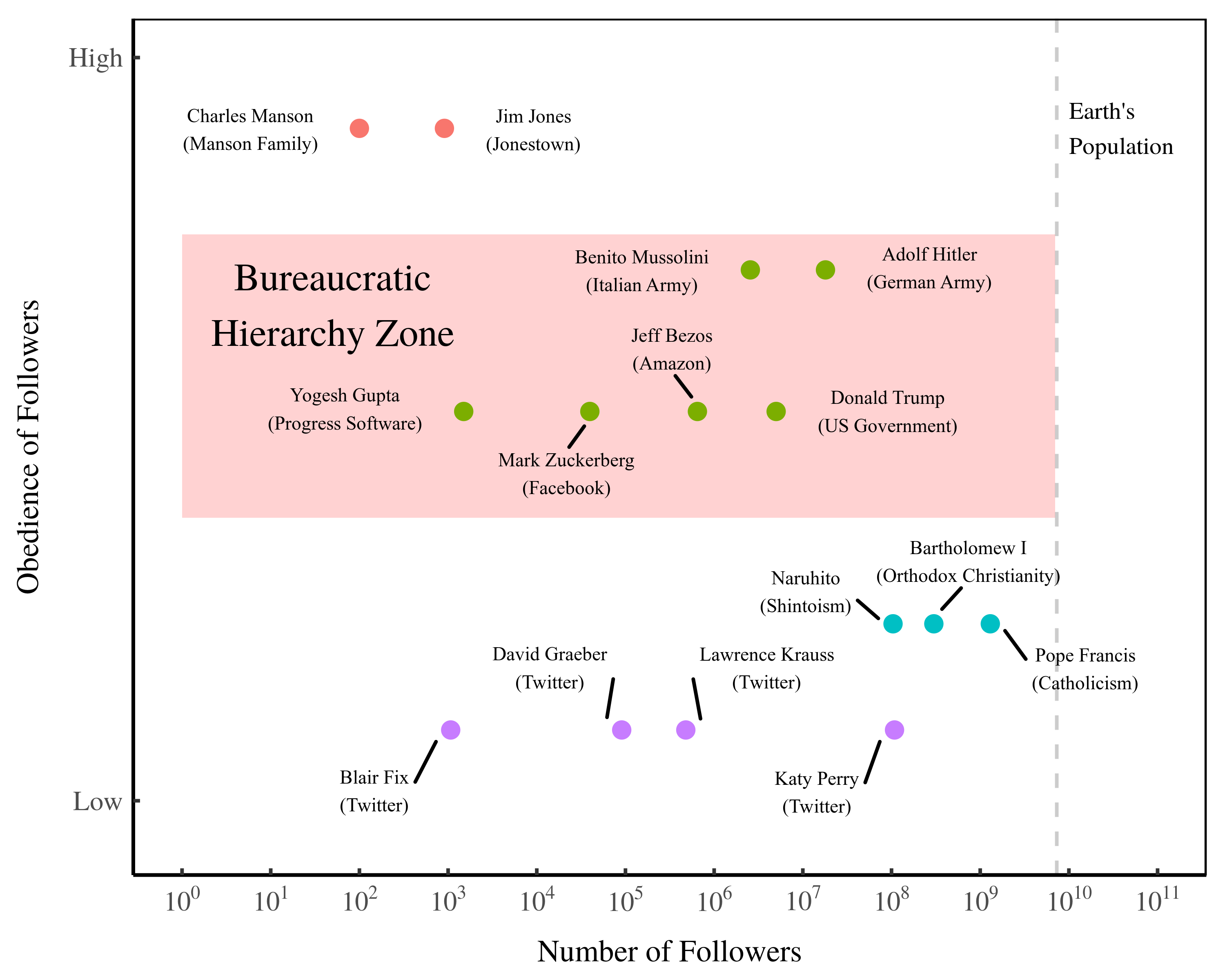Originally published at Economics from the Top Down Blair Fix If there was an award for the most pernicious scientific idea ever, what theory should get first prize? I would vote for eugenics, a theory that claims we can ‘improve’ humanity through selective breeding. If there was a second prize, I’d give it to human […]
Continue ReadingFix, ‘Redistributing Income Through Hierarchy’
Abstract Although the determinants of income are complex, the results are surprisingly uniform. To a first approximation, top incomes follow a power-law distribution, and the redistribution of income corresponds to a change in the power-law exponent. Given the messiness of the struggle for resources, why is the outcome so simple? This paper explores the idea […]
Continue Reading2021/04: Fix, ‘Redistributing Income Through Hierarchy’
Abstract Although the determinants of income are complex, the results are surprisingly uniform. To a first approximation, top incomes follow a power-law distribution, and the redistribution of income corresponds to a change in the power-law exponent. Given the messiness of the struggle for resources, why is the outcome so simple? This paper explores the idea […]
Continue ReadingA Second Look at Hierarchy
Originally published on Economics from the Top Down Blair Fix Last fall, I wrote a short article for The Mint Magazine about how income relates to hierarchy. The Mint, if you’re not familiar, does great work promoting pluralist thinking in economics. Check out their on-going Festival for Change — a festival devoted to building a […]
Continue ReadingFix, ‘Economic Development and the Death of the Free Market’
Abstract According to neoclassical economics, the most efficient way to organize human activity is to use the free market. By stoking self interest, the theory claims, individuals can benefit society. This idea, however, conflicts with the evolutionary theory of multilevel selection, which proposes that rather than stoke individual self interest, successful groups must suppress it. […]
Continue ReadingThe Paradox of Individualism and Hierarchy
Originally published on Economics from the Top Down Blair Fix In the early 1970s, Geert Hofstede discovered something interesting. While analyzing a work-attitude survey that had been given to thousands of IBM employees around the world, Hofstede found that responses clustered by country. In some countries, for instance, employees tended to prefer an autocratic style […]
Continue ReadingFix, ‘The Rise of Human Capital Theory’
Abstract Today, human capital theory dominates the study of personal income. But this has not always been so. In this essay, I chart the rise of human capital theory, and compare it to the rise (and fall) of eugenics. The comparison, I argue, is an apt one. Eugenics and human capital theory both focus on […]
Continue Reading2021/02: Fix, ‘Living the good life in a non-growth world: Investigating the role of hierarchy’
Abstract Humanity’s most pressing need is to learn how to live within our planet’s boundaries — something that likely means doing without economic growth. How, then, can we create a non-growth society that is both just and equitable? I attempt to address this question by looking at an aspect of sustainability (and equity) that is […]
Continue ReadingWhat Trait Affects Income the Most?
Originally published on Economics from the Top Down Blair Fix If the history of science has taught us anything, it’s that we can’t trust our preconceptions about how the world works. All human societies have developed stories about their place in the cosmos. Almost without exception, these stories were wrong. True, we’ve killed many of […]
Continue ReadingThe Free Market as a Double Lie
Originally published on Economics from the Top Down Blair Fix As social animals, humans live and die by the success of our groups. This raises a dilemma. What’s best for the group is often not what’s best for individuals within the group. If you’re surrounded by a group of trusting individuals, it’s best for you […]
Continue ReadingWhat if the Government is Just Another Firm? (Part 2)
Originally published on Economics from the Top Down Blair Fix Governments are different than firms, right? Perhaps not. In Part 1 of this series, I argued that when it comes to size, governments behave like they’re ‘just another firm’. In this post, I’m going to extend the evidence. I’ll first show you that as economies […]
Continue ReadingFix, ‘How the Rich Are Different: Hierarchical Power as the Basis of Income Size and Class’
Abstract This paper investigates a new approach to understanding personal and functional income distribution. I propose that hierarchical power — the command of subordinates in a hierarchy — is what distinguishes the rich from the poor and capitalists from workers. Specifically, I hypothesize that individual income increases with hierarchical power, as does the share of […]
Continue ReadingBichler and Nitzan, ‘Growing Through Sabotage’
Growing Through Sabotage Energizing Hierarchical Power SHIMSHON BICHLER and JONATHAN NITZAN June 2020 Abstract According to the theory of capital as power, capitalism, like any other mode of power, is born through sabotage and lives in chains — and yet everywhere we look we see it grow and expand. What explains this apparent puzzle of […]
Continue ReadingSome Sunshine on the Ontario Job Hierarchy
Originally published on Economics from the Top Down Blair Fix Income, I’ve come to believe, is shaped largely by rank within a hierarchy. If you’re at the top of a hierarchy, you’ll earn a handsome sum. But if you’re at the bottom of a hierarchy, you’ll earn a pittance. As a hard-nosed scientist, I’m always […]
Continue ReadingThe Power Ethos in the US Military
Originally published on Economics from the Top Down Blair Fix In How Hierarchy Can Mediate the Returns to Education I examined the pay structure of the US military. I found that hierarchical rank is (by far) the strongest determinant of military pay. Here I want to show you that there is a regularity to military […]
Continue ReadingHow Hierarchy Can Mediate the Returns to Education
Originally published on Economics from the Top Down Blair Fix In The Social Environment as a Cause in Economics I argued that human behavior has two parts: Individual variation An environment that acts on this variation To illustrate these two parts, I used the example of the peppered moth. This species comes in two colors […]
Continue ReadingBichler & Nitzan, ‘Growing through Sabotage: Energizing Hierarchical Power’
Abstract According to the theory of capital as power, capitalism, like any other mode of power, is born through sabotage and lives in chains – and yet everywhere we look we see it grow and expand. What explains this apparent puzzle of ‘growth in the midst of sabotage’? The answer, we argue, begins with the […]
Continue Reading2020/01: Fix, ‘Economic Development and the Death of the Free Market’
Abstract Free markets are, according to neoclassical economic theory, the most efficient way of organizing human activity. The claim is that individuals can benefit society by acting only in their self interest. In contrast, the evolutionary theory of multilevel selection proposes that groups must suppress the self interest of individuals. They often do so, the […]
Continue ReadingAn Evolutionary Theory of Resource Distribution (Part 3)
Originally published on Economics from the Top Down Blair Fix When it comes to earning income in a hierarchy, it’s not what you know that matters. It’s who you control. This was the provocative idea that I proposed in Part 2 of this series on an evolutionary theory of resource distribution. In this post, I […]
Continue ReadingAn Evolutionary Theory of Resource Distribution (Part 2)
Originally published on Economics from the Top Down Blair Fix A 25% chance. That’s the likelihood that when I tell someone I’m searching for a job, they’ll say: Remember, Blair … to land a job, it’s not what you know that matters. It’s who you know. OK, maybe I’m exaggerating this chance. Still, it’s an […]
Continue Reading
